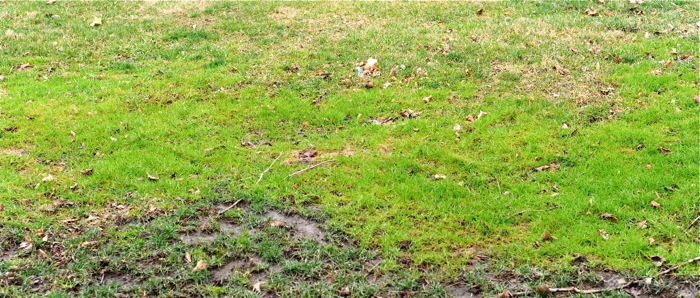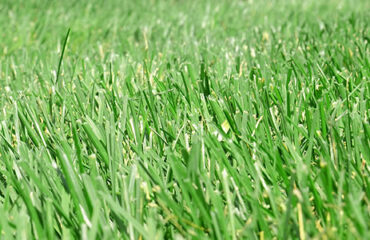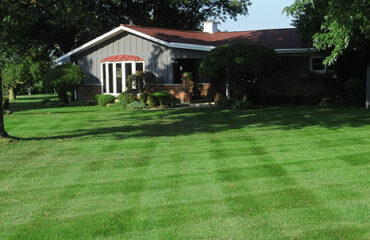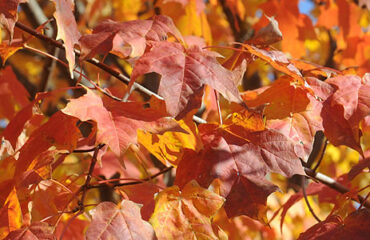It may come as a surprise to hear that the dead of winter is a good time to survey your lawn and look for something that looks good, but in prospector’s terms, is “fool’s gold”.
We’re talking about Poa Annua, of course, a noxious summer grass that looks good as part of your lawn in spring and fall, only to dry up and lift out of the ground like a bad toupe’ during the dog days of July and August.
And we use the term “noxious” with a grain of salt, of course, because in many parts of the country “Poa” (pronounced simply, PO) is a desired variety for lawns and even golf courses. But here, in the Midwest, it’s a scourge.
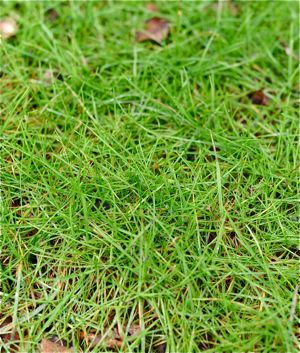
It looks like bluegrass, but lacks the root system and vigor to maintain growth and color during hot weather.
Poa Annua, or annual bluegrass, is an annual weed that looks similar to a regular lawn grass for a short while. It looks a little like Kentucky bluegrass, except it has a lighter shade of green, shallower roots, and develops a short seed head early in the season. The problem is the shallow root part. It soaks up water and nutrients during the cool days of spring and fall, only to leave you high and dry come the hottest days of summer.
If you’re unaware, winter is a good time to see if you have it in your lawn. Like the accompanying photo above, it will stand out during the off-season because of its lush, light green color. You may see splotches of it (as in the picture), or in time it will take over entire yards. Some, with irrigated yards, actually like it. But it does require a lot of water and maintenance if you care how it looks in hot weather.
It can be treated with a chemical like Tenacity, but that’s expensive and sometimes the best thing to do is spray it with Roundup and start over…that is, if it’s patchy.
Some choose to leave it alone, taking the best days of spring and summer for what they are. But if you wonder why some areas die out in summer and come back in fall, you might have Poa Annua. For more information call Ever-Green and get confirmation, and some options for replacing Poa Annua with more desirable grasses like blue grass and perennial rye.
As always, the phone call is free. The frustration of dead spots in your lawn…well, just give us a call!

